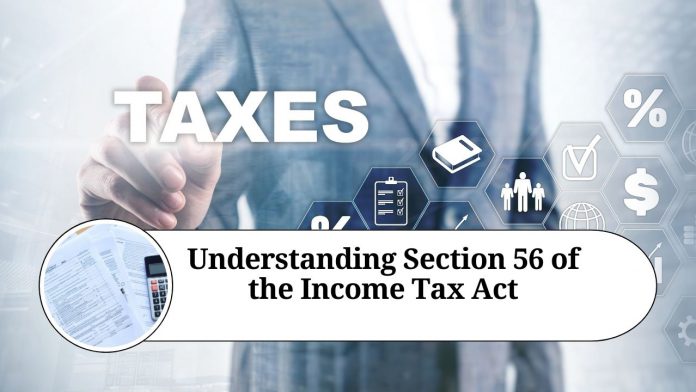Introduction:
Gifts have been a traditional way to express love and affection to our near and dear ones on special occasions. However, it is important to understand the tax implications of gifts under Section 56 of the Income Tax Act, 1961.
What is Section 56 of the Income Tax Act?
Section 56 of the Income Tax Act covers the tax implications of gifts. This section covers gifts that are received in cash or kind by an individual, HUF (Hindu Undivided Family), or any other person. The section states that any gift received in excess of Rs. 50,000 is taxable in the hands of the recipient.
Tax Implications of Gifts under Section 56:
- Gifts in Cash: Any gift received in cash exceeding Rs. 50,000 is taxable in the hands of the recipient as income from other sources.
- Gifts in Kind: Gifts received in kind, such as property, shares, jewelry, etc., are also taxable if their fair market value exceeds Rs. 50,000. In such cases, the recipient is required to pay tax on the fair market value of the gift.
- Exemptions: However, there are certain exemptions available under Section 56 of the Income Tax Act. Gifts received from relatives are exempt from tax, irrespective of their value. Relatives here include parents, siblings, spouses, aunts, uncles, and grandparents.
- Gifts from Employers: Gifts received from employers by employees are exempt from tax if their value is up to Rs. 5,000 per annum.
- Gifts on Occasions: Gifts received on occasions like marriage, or inheritance from a will or by way of a trust are also exempt from tax.
Importance of Understanding Section 56 of the Income Tax Act:
It is crucial to understand the tax implications of gifts under Section 56 of the Income Tax Act to avoid any unnecessary tax liabilities. Many people may not be aware of the tax implications of gifts and may unknowingly receive gifts that exceed the tax-free limit. It is essential to keep track of all gifts received and their values to ensure compliance with the Income Tax Act.
Impact on Gift Giving:
The tax implications of gifts under Section 56 of the Income Tax Act may impact the way people give gifts. For example, if someone wants to give a gift that exceeds Rs. 50,000, they may have to consider the tax implications of the gift and may choose to give a gift that falls within the tax-free limit to avoid any tax liabilities. This may affect the gift-giving culture and may limit people’s ability to give gifts they would like to give.
Penalties for Non-Compliance:
Non-compliance with the tax implications of gifts under Section 56 of the Income Tax Act may result in penalties and fines. If a recipient fails to report a taxable gift or provides inaccurate information on their tax returns, they may be penalized. The penalty can be up to 200% of the tax liability in addition to the tax payable.
Conclusion:
In conclusion, understanding the tax implications of gifts under Section 56 of the Income Tax Act is essential for individuals and businesses. It is important to keep track of all gifts received and their values and ensure compliance with the Income Tax Act to avoid any unnecessary tax liabilities and penalties. While the tax implications of gifts may impact gift-giving culture, it is important to comply with the law and consult a tax expert if necessary.
Read more useful content:
- section 145 of income tax act
- section 10e of income tax act
- section 9 of the income tax act
- section 94b of income tax act
- section 206aa of income tax act
Frequently Asked Questions (FAQs)
- What is the tax-free limit for gifts under Section 56 of the Income Tax Act?
- The tax-free limit for gifts under Section 56 of the Income Tax Act is Rs. 50,000.
- Are gifts received from relatives taxable under Section 56 of the Income Tax Act?
- No, gifts received from relatives, such as parents, siblings, spouses, aunts, uncles, and grandparents, are exempt from tax, irrespective of their value.
- Are gifts given to relatives taxable under Section 56 of the Income Tax Act?
- No, gifts given to relatives are not taxable under Section 56 of the Income Tax Act.
- Are gifts received on occasions like marriage taxable under Section 56 of the Income Tax Act?
- No, gifts received on occasions like marriage or inheritance from a will or by way of a trust are exempt from tax.
- Are gifts given by employers taxable under Section 56 of the Income Tax Act?
- Gifts given by employers to employees are exempt from tax if their value is up to Rs. 5,000 per annum.
- Are gifts received by minors taxable under Section 56 of the Income Tax Act?
- Yes, gifts received by minors are taxable under Section 56 of the Income Tax Act, and the minor is required to pay tax on the gift.
- Are gifts received by NRIs taxable under Section 56 of the Income Tax Act?
- Yes, gifts received by NRIs (Non-Resident Indians) in India are taxable under Section 56 of the Income Tax Act.
- Are gifts received by charitable organizations taxable under Section 56 of the Income Tax Act?
- Yes, gifts received by charitable organizations are taxable under Section 56 of the Income Tax Act if their value exceeds Rs. 50,000.
- Can gifts be given to avoid tax liabilities?
- Giving gifts to avoid tax liabilities is not advisable and may result in penalties and fines.
- Is it necessary to report gifts received under Section 56 of the Income Tax Act?
- Yes, it is necessary to report gifts received under Section 56 of the Income Tax Act and pay tax on taxable gifts. Failure to report taxable gifts may result in penalties and fines.



















